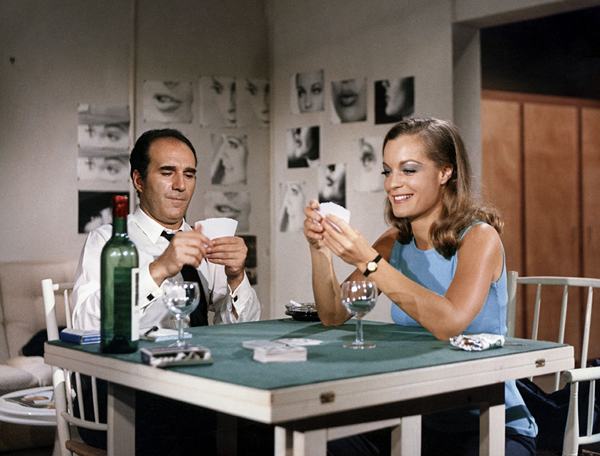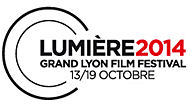The cinema of Claude Sautet by N.T. Binh
PostED THE 16.10.2014 AT 4:32PM
It was a packed house Wednesday night at Pathé Bellecour for the screening of Max and the Junkmen by Claude Sautet. N.T. Binh, a specialist of the filmmaker (whose documentary Claude Sautet or the Invisible Magic - Claude Sautet, ou la magie invisible – is showing at the festival) was on hand to introduce the film.

Why choose to present Max and the Junkmen of Claude Sautet's filmography?
It was one of his favorite films, if somewhat neglected during a prolific period, between The Things of Life and César and Rosalie. Of the three, Max and the Junkmen is film that has enjoyed the least success, is less cited by cinephiles. Like parents who stand up for an unloved child, Sautet was very attached to this film. He thought he had given the best of himself and felt misunderstood. Claude Sautet harbored many doubts when he worked and questioned films he had made. I think Max is one of the films he was proud of. He used to go back and shorten his films when they were broadcast on television. But for Max, he just removed one of Romy Schneider's lines, that's all. He was aware that it was a sort of perfect film.
In your documentary, Claude Sautet claims Max is his only stylized film. Do you agree?
The formal approach is more apparent here than in his other films. We tend to put a label of realism on a film by Claude Sautet. Although the film contains realistic scenes with junkmen in particular, the main storyline, the relationship between Max and the police, between Max and Lily (Romy Schneider), was constructed in a kind of expressionism. There was a formal stylization that Sautet had otherwise rarely allowed himself. In the same vein, he had a fondness for A Few Days with Me, in which we also find a conscious choice of ostentation. In this respect, making Max was a lot of fun, with its emphasis on costumes, sets, makeup... Sautet is usually known as a master of restraint and modesty, whereas this film contains a force of expression and raw power.
Does he remain one of the great actors' directors of the French cinema?
He is a great director, who was not fully recognized as such during his lifetime. He has had success, films well received by the critics, but his works were not necessarily taken seriously by cinephiles and more specialized critics. He was not considered a full-fledged author, unlike some of his contemporaries in the New Wave like his friend François Truffaut, for example. Truffaut has always been associated with creation in the first person. In Sautet's case, one spoke of his skill, his tact, his, efficiency. But we have often recognized that he gave major roles to well-known actors, challenging their pre-existing images. In light of this fact, he was a great director of actors. H was also a great director of authors because he was able to work very closely with his writers to integrate very personal elements that never appeared in the first person.
What would you say to younger generations who are less connoisseurs of cinema?
I notice that young viewers, who have often heard of Claude Sautet through their parents, are often very surprised at how modern his films remain. Even if there are emblems of his time displayed through the characters' costumes, hairstyles and the set, the younger generations are still very sensitive to the emotions that are conveyed by the characters., perhaps even more so than their parents' generation, which settled into a comfortable Sautet world. The raw, exposed side, the unfiltered emotional side of the cinema of Claude Sautet really speaks to the young. What is also striking is some form of subtle virtuosity. I think the scene of the accident in The Things of Life has an impact on many viewers when they see it today.
Interview by Elsa Colombani
